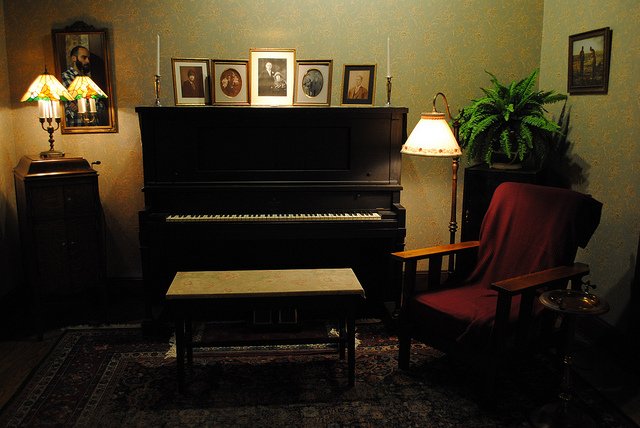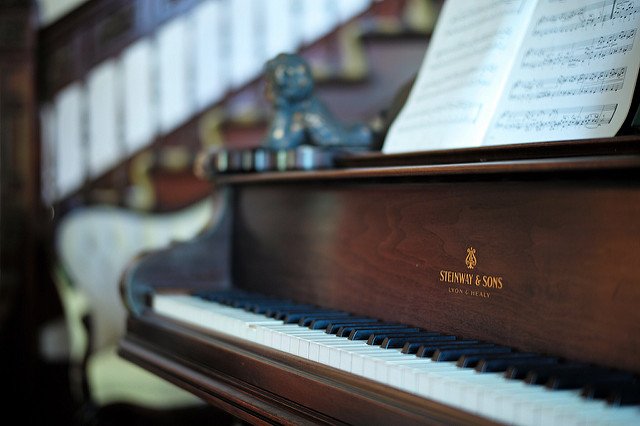The Mozart Effect - How Clasical Music Changes Your Behavior

I listen to a variety of music genres, but vocal trance is what I mostly tune into, especially when I'm driving. It's uplifting and good-mood inducing.
I learned about the neuropsychological implications of music a few years back and since then I started paying more attention to how I react to different beats.
You've probably heard others saying that listening to a specific type of music influence your behavior but you may have not been provided scientific evidence for the claim. I've looked into this matter and here's what I found.
Past and Present Studies
In 1993 Dr. Frances Rauscher and her colleagues at U.C. Irvine conducted a study to determine the effects of listening to Mozart music.
They recruited 36 students and divided them into three groups:
- group 1: listen to Mozart's Sonata K 448
- group 2: listen to a relaxing voice for 10 minutes
- group 3: sit in silence for 10 minutes
Immediately after the interventions, the subjects were tested with the Stanford-Binet intelligence scale to determine if there was any change in their visual and spatial learning:
- group 1: average score of 119 points.
- group 2: average score of 111 points.
- group 3: average score of 110 points.
I know this looks like a very modest change. And it probably is. But the study caused hype, which is what I found more interesting:
- in 1998, Georgia's governor issued a bill so that mothers of newborns receive CD with classical music.
- in 1998, state laws required Florida daycare centers to play at least 1 hour of classical music every day.
How did I get to be interested in this?
I learned about music and brain behavior after reading Daniel Amen's controversial book Change your Brain, Change your Life. While I was deeply influenced by his book back then, I grew to be more skeptical as years went by, not only of Dr. Amen but of every claim that is not supported by strong evidence.
Anyhow, Dr. Amen considers himself a brain specialist because since the '90s he has been analyzing thousands of SPECT scans (a type of computer tomography) of his patients; based on those scans, he has developed his own way of diagnosing and intervening to improve the pathological conditions of these patients. I assume that his method may work, even though it has not been widely accepted by the scientific community.
I am going off track...
So, in his book he explains how exposing yourself to a certain type of music is like a door opener to the human mind, while exposing yourself to other types of music can be disturbing and destructive (hmm, bold claim). He specifically points to young people who listen to heavy metal music and end up in rehabilitation centers.
I'd say: correlation != causation, but anyway, this could be one of the reasons for the lack of wide acceptability of his methods.
I also read a study entitled The Secret Life of the Unborn Child where Dr. Verny wanted to determine the reaction of fetuses exposed to Vivaldi and Mozart music. According to Dr. Verny, the little ones were calmer when exposed to classical music as their heart rates and kicks were fewer and milder. Conversely, when they were exposed to more 'aggressive' music, their heart rates were more intense and their kicks more powerful. I am not aware if this type of study has been replicated since.

How Music Influences Me
I started this article telling you how good-mood inducing trance music is to me. I also told you that I listen to a variety of music genres. For one reason, I enjoy Metallica and their 1992 Metallica album. One of my favorite songs from this album is Wherever I may Roam.
As I plug the album in my car CD player and as it starts playing, it's like a flood of endorphins rushing in. I can feel its energy and refreshing effect.
I know this may sound 'esoteric', and it probably is. I could simply be the subject of self-induced suggestion. But I don't mind. I enjoy the effect and I kindof anticipate it. So, this is a nice hack when I feel lethargic behind the wheel.
Similarly, when I write, I find I'm most creative while listening to instrumental trance, chillout and to classical music. I particularly listen to chillout while reading books. It seems to increase my ability to focus and to understand the words and concepts I'm reading.
It may be that Mozart's K. 448 Sonata does its magic on me in my creative blocks of time, which is why l think it's reasonable to end this post by sharing a link to it. Enjoy!
To stay in touch, follow @cristi
Credits for Images: here and here.
#psychology #neuroscience #practical #music
Cristi Vlad, Self-Experimenter and Author
Making a new series Top 5 Psychology Gems I have featured you in it for today.
https://steemit.com/psychology/@carlidos/top-5-psychology-gems-new-series-8-27-16
thank you @carlidos. I will check it out!
@cristi
I upvoted because I am a fan of classical music myself. Nonetheless there is a another effect going on with the experiment. It is not the music itself that affects the brain but rather the frequencies.
This is also true for babies. Researchers were convinced that classical music relaxed babies but the neglected the fact that classical music emulates the voice of the mother echoing through the baby.
fascinating stuff
do you think it's something similar to binaural beats?
YES! ♫••.¸♥¸.••♫"My body lie but still I roam"! ♫••.¸♥¸.••♫
another Metallica favorite is Turn the Page . not sure if you know of it
I've always enjoyed classical music -- Mozart is my favorite! I guess I'm kind of an oddball. I even had some Mozart CDs back when I was in high school.
now that we have the internet at our fingertips, we should listen to this type of music more often :)
Classical music is truly amazing. I've never understood how anyone could not like it. One of my all-time favorite classical pieces is the intro to Tchaikovsky's Piano Concerto #1 in B flat minor.
I love the classical piano pieces - they actually led me to learning to play the piano several years ago. I don't play as much as I would like, but I certainly enjoy it when I do.
Thanks for the post! Good job!
you made me consider putting another item in my bucket list, which seems to be over-spilling. but, heck, I hope to someday be playing an instrument. I'd probably go for the violin or the piano. thanks for the feedback!
My mother always encouraged me to play the piano when I was a kid - we had an old, classic upright in our house - but I never wanted to learn because I didn't think it was "cool." Instead, I was interested in the drums and guitar, which I never learned either. As an adult, that's one of my biggest regrets in life - not learning to play an instrument as a child.
If you truly want to learn, start now! It's very fulfilling, especially when you learn to play a song that you've always loved! (I've also been learning to play guitar, which is equally enjoyable. And the funny thing is - my father is a music teacher, conductor, and is heavily involved in Drum Corps International...and I still never learned to play an instrument as a kid. Such a rebel I was. Not a smart one, though!)
I kindof follow the idea that it's never too late. not sure why, but I kindof feel you've given up on it...
I certainly haven't given up. I have a piano and a guitar and play them often - just not often enough.
My two favorites are Moonlight Sonata by Beethoven and The Planets by Gustav Holst. Great article.
great picks! how about this one?
I remember it used to be featured a lot in Tom and Jerry lol
I am fascinated by Dr. Verny's findings! I wonder why there aren't many/any follow up studies on that subject. I think there are similar effects from your music tastes and mine, check out my latest article on Folk: https://steemit.com/introduceyourself/@brownsgreens/why-folk-music-never-dies-words-from-band-leader-of-smith-house